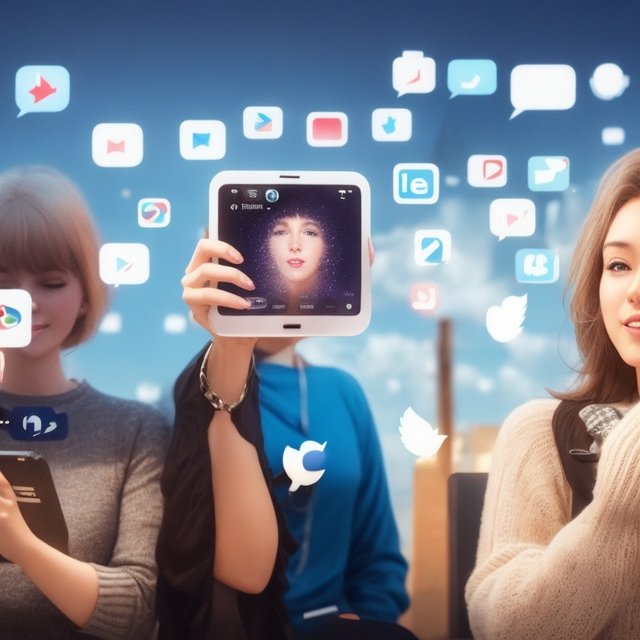In the digital age, technology has transformed the way we live, work, and connect with one another. Social media, in particular, stands as a prominent pillar of this technological revolution, altering the fabric of human interactions, communication, and even the perception of self. In this comprehensive exploration, we delve into the multifaceted effects of social media on humans, from the profound shifts in communication to the psychological and societal implications that have reshaped the modern human experience.
Redefining Communication Dynamics
Social media has redefined the landscape of human communication. It has transcended geographical boundaries and time zones, enabling instant connections with friends, family, and even strangers across the globe. Platforms like Facebook, Instagram, Twitter, and LinkedIn provide avenues for both synchronous and asynchronous communication, fostering relationships that might not have been feasible in a pre-digital era.
Impact on Identity and Self-Expression
The virtual realm of social media serves as a canvas for individuals to craft and project their identities. Users meticulously curate their profiles, selecting moments and aspects of their lives to share with the world. However, this selective self-presentation can lead to a phenomenon known as the "highlight reel effect," where individuals feel pressure to showcase only the positive aspects of their lives, contributing to feelings of inadequacy and comparison.
The Dopamine Effect and Instant Gratification
The "like" button, comments, and shares on social media platforms trigger a dopamine response in the brain, creating a sense of pleasure and reward. This phenomenon drives users to seek validation and engagement, leading to addictive behaviors and the compulsion to constantly check notifications.
Social Capital and Network Building
Social media has introduced the concept of social capital, where the number of followers, likes, and connections can translate into influence, opportunities, and even financial gain. Users with extensive networks can leverage their reach for personal and professional purposes, reshaping the way relationships are cultivated and maintained.
Fostering Global Activism and Awareness
The power of social media to amplify messages and mobilize masses has been instrumental in catalyzing social and political movements. From the Arab Spring to the #MeToo movement, these platforms have proven to be essential tools for raising awareness, galvanizing support, and challenging established norms.
The Dark Side: Cyberbullying and Mental Health
While social media has connected people, it has also given rise to cyberbullying, trolling, and online harassment. The anonymity of the internet can embolden individuals to engage in harmful behavior that they might not exhibit offline. Moreover, the pressure to conform to idealized standards and the constant exposure to curated lives can negatively impact mental health, leading to issues like anxiety, depression, and feelings of isolation.
Information Overload and Misinformation
The deluge of information on social media has made it challenging to distinguish accurate information from misinformation. False narratives can spread rapidly, contributing to the proliferation of "fake news" and the erosion of trust in traditional sources of information.
Privacy Concerns and Data Security
The sharing of personal information on social media raises significant privacy concerns. Data breaches, surveillance, and the unauthorized use of personal information have become prevalent issues, prompting conversations about the need for stringent data protection measures.
Balancing the Benefits and Pitfalls
While the effects of social media on humans are undeniably transformative, achieving a harmonious balance between its benefits and pitfalls is paramount. Digital literacy, responsible usage, and mindfulness about the potential psychological impacts are crucial in navigating this ever-evolving technological landscape.
In conclusion, the impact of social media on humans is far-reaching and complex. It has reshaped communication, identity, activism, and even mental health dynamics. Acknowledging both the positive and negative effects of social media is essential in harnessing its potential for authentic connection, societal progress, and individual well-being. As technology continues to evolve, the way we navigate these effects will shape the future of human interactions in the digital age.
